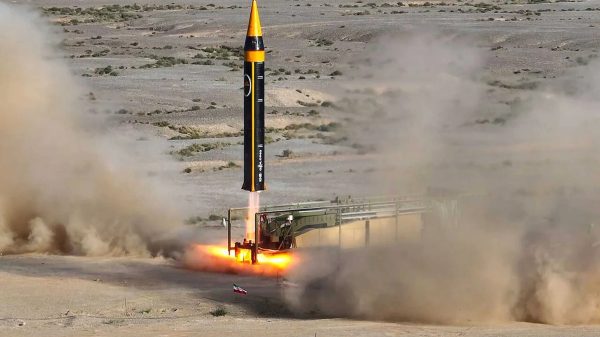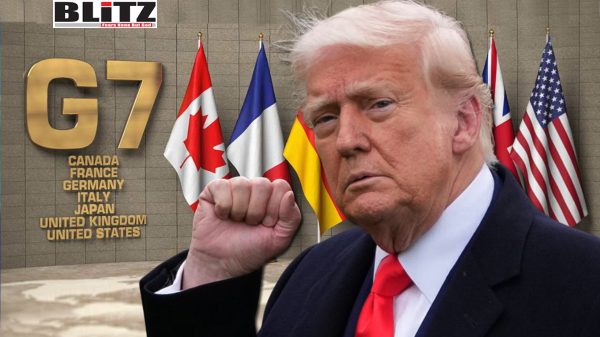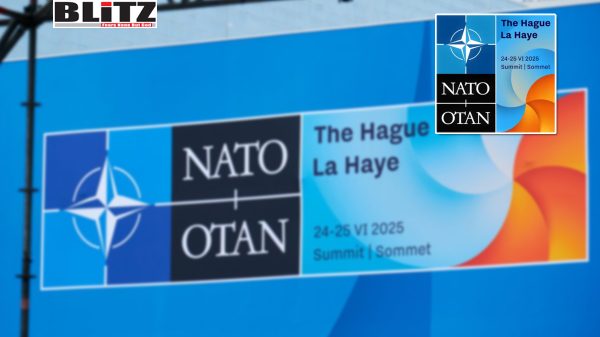Chaos and confusion in Tehran as ceasefire falters despite Trump’s interventions
- Update Time : Wednesday, June 25, 2025

Explosions echoed through the Iranian capital on June 24, shattering the fragile calm promised by a ceasefire brokered just hours earlier. The blasts, reported by witnesses in northern Tehran, reignited fears of renewed escalation in the wake of a devastating 12-day military campaign between Israel and Iran.
The situation took an unexpected diplomatic twist when US President Donald Trump publicly declared that he had ordered Israel to stand down from a planned airstrike. Posting on Truth Social, Trump claimed to have halted the mission personally, writing, “All planes will turn around and head home, while doing a friendly ‘Plane Wave’ to Iran. Nobody will be hurt, the Ceasefire is in effect!”
Yet minutes later, reports of explosions suggested otherwise. Israeli army radio claimed that Israel had targeted an Iranian radar facility near Tehran. The Iranian government, however, denied any hostile military activity on its part and accused Israel of violating the truce by continuing strikes for more than an hour after the ceasefire was supposed to begin.
This contradictory flow of information highlights the volatility and confusion surrounding the ceasefire, which was agreed upon barely two days after the US joined Israel in a series of attacks on Iranian nuclear facilities. The campaign had already marked the deadliest confrontation between the two countries in decades, with Iranian officials stating that hundreds had been killed and critical infrastructure severely damaged.
The apparent de-escalation effort came after an unusually candid and expletive-laced outburst by President Trump, who lashed out at Israel despite his administration’s previous alignment with its military objectives. Speaking to reporters before leaving for a NATO summit in the Netherlands, Trump remarked, “I’ve got to get Israel to calm down now. Iran and Israel have been fighting so long and so hard that they don’t know what the fuck they’re doing.”
His frustration was further evident in another Truth Social post, in which he warned, “Israel. Do not drop those bombs. If you do it it is a major violation. Bring your pilots home, now!”
Multiple media outlets confirmed that Trump had spoken directly to Israeli Prime Minister Benjamin Netanyahu. Sources close to the conversation suggest that Netanyahu agreed to “scale back” the strikes rather than cancel them outright-a compromise that seemingly failed to prevent further violence.
Netanyahu’s office later issued a statement denying any new airstrikes after his conversation with Trump, but the veracity of this claim remains questionable given eyewitness reports and the Israeli military’s own confirmation of a radar strike.
Despite the confusion and violations, the announcement of a ceasefire brought a glimmer of hope to civilians on both sides of the conflict. In Iran, people cautiously emerged from shelters and safe zones, hoping that the worst was over. Reza Sharifi, a Tehran resident who had taken refuge with his family in Rasht, told Reuters, “We’re happy, very happy. Who mediated or how it happened doesn’t matter. The war is over. It never should have started in the first place.”
In Israel, the relief was bittersweet. Arik Daimant, a software engineer from Tel Aviv, lamented the destruction of his home but welcomed the potential for peace. “Regrettably, it’s a bit too late for me and my family, because our house back here was totally destroyed in the recent bombings last Sunday. But as they say: ‘better late than never’, and I hope this ceasefire is a new beginning,” he said.
Still, the prospect of a durable peace remains uncertain. Israeli Defense Minister Israel Katz had earlier asserted that Israel would continue to target Tehran in response to what he described as Iran’s “blatant violation” of the ceasefire, claiming missiles had been fired into Israeli territory. Iran firmly denied launching any missiles and maintained that Israel was the aggressor.
Iran also continues to assert that its nuclear program is purely peaceful, while Israel argues that the threat of a nuclear-armed Iran justifies its pre-emptive campaign. The June 13 surprise Israeli attack on Iranian nuclear sites reportedly killed several senior military officials, in what analysts describe as Iran’s gravest national security breach since the Iran-Iraq War of the 1980s.
With Iranian media under strict control, independent verification of the scale of devastation remains difficult. However, Iranian officials report that hundreds of people have died in the recent airstrikes, while in Israel, at least 28 civilians were killed by Iranian missile retaliation-marking the first time Iran has successfully breached Israel’s Iron Dome defense system on such a scale.
The sudden intensity of the violence, and its rapid de-escalation following Trump’s intervention, has drawn both criticism and praise. Some international observers view Trump’s direct diplomacy as reckless, citing his crude rhetoric and impulsive announcements. Others argue that his unorthodox approach succeeded-at least temporarily-in halting a full-scale war.
Whether the ceasefire holds will depend on whether both Tehran and Tel Aviv heed Washington’s call for calm, or whether domestic pressures and military calculations lead them once again to the brink.
For now, the skies over Tehran and Tel Aviv are quiet-but as history has shown, such silence in this region is rarely permanent.











